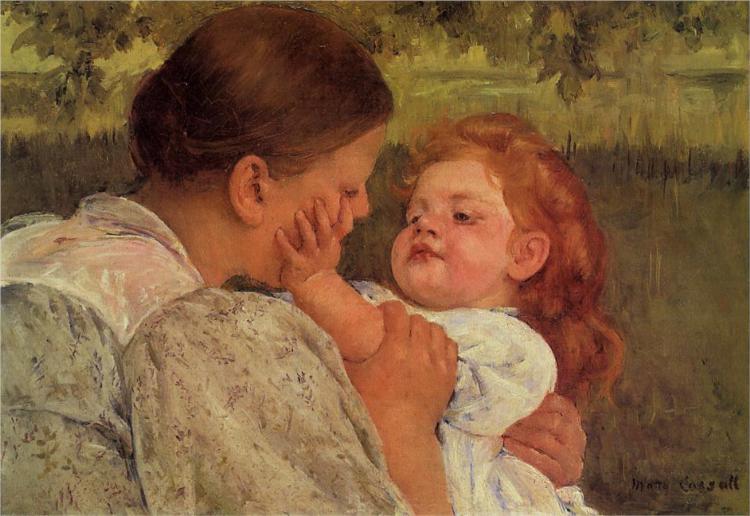
Being about more than the self pulls people together, and makes orderly societies possible.
A prime demand of the orderly life is the taming of the ego. In its pre-orderly state, the ego senses desired ends but lacks the discipline necessary to achieve them.
For anyone who is committed to the well-being of others, selflessness acquires another dimension. The ego must be brought under control in the service of others. This broader conception of orderliness leads eventually to spirituality.
Real
True Narratives
Technical and Analytical Readings
Photographs
Documentary and Educational Films
Imaginary
Fictional Narratives
In Les Misérables, Valjean gives up an easy and secure life for a life that allows Cosette her independence and freedom:It will be remembered that Jean Valjean was happy in the convent, so happy that his conscience finally took the alarm. He saw Cosette every day, he felt paternity spring up and develop within him more and more, he brooded over the soul of that child, he said to himself that she was his, that nothing could take her from him, that this would last indefinitely, that she would certainly become a nun, being thereto gently incited every day, that thus the convent was henceforth the universe for her as it was for him, that he should grow old there, and that she would grow up there, that she would grow old there, and that he should die there; that, in short, delightful hope, no separation was possible. On reflecting upon this, he fell into perplexity. He interrogated himself. He asked himself if all that happiness were really his, if it were not composed of the happiness of another, of the happiness of that child which he, an old man, was confiscating and stealing; if that were not theft? He said to himself, that this child had a right to know life before renouncing it, that to deprive her in advance, and in some sort without consulting her, of all joys, under the pretext of saving her from all trials, to take advantage of her ignorance of her isolation, in order to make an artificial vocation germinate in her, was to rob a human creature of its nature and to lie to God. And who knows if, when she came to be aware of all this some day, and found herself a nun to her sorrow, Cosette would not come to hate him? A last, almost selfish thought, and less heroic than the rest, but which was intolerable to him. He resolved to quit the convent. [Victor Hugo, Les Miserables (1862), Volume IV – Saint-Denis; Book Third – The House in the Rue Plumet, Chapter I, The House With a Secret.]
Novels, from the dark side:
- Charlotte Mendelson, The Exhibitionist: A Novel (St. Martin’s Press, 2023): “Google the word “exhibitionist” and you will surface some unsavory porn sites. Here it refers rather to a massively egotistic artist, Ray Hanrahan, who in the autumn of his years and the winter of 2010 is preparing to show his paintings for the first time in decades.”
Poetry
Music: Composers, artists, and major works
Johannes Brahms composed two major chamber works featuring clarinet. In each of them, a minor key conveys an air of concern as we hear three instrumental families – piano, clarinet and strings – joining together in common cause.
- Brahms, Trio for Piano, Clarinet and Violincello in A Minor, Op. 114 (1891) (approx. 24-27’)
- Brahms, Quintet for Clarinet, 2 Violins, Viola and Violincello in B Minor, Op. 115 (1891) (approx. 34-40’) (top recorded performances are by Draper & Léner String Quartet in 1928, Kell & Busch Quartet in 1937, Wlach & Vienna Konzerthaus Quartet in 1952, de Peyer & Melos Ensemble London members in 1965, Leister & Amadeus String Quartet in 1967, Daniels & The Composers String Quartet in 1990, Wright & Boston Symphony Chamber Players in 1994, Shifrin & Emerson String Quartet in 1996, and Fröst, Jansen, Brovtsyn, Rysanov, Thedéen, Pöntinen in 2014)
The bass is a foundational instrument, intuitively and in most musical compositions. In jazz, other voices take the spotlight while the bass provides their foundation. Still, artists such as Oscar Pettiford and Charles Mingus made the bass a star in its own right, even as they served their supporting function for the other players. “. . . Mingus liberated the bass from its mundane role of keeping time, turning it into a fully versatile instrument as capable of stating the theme as the horns.” Here is a link to a playlist of Pettiford’s albums. Mingus’ playlist is long, including classic albums “Ah-Um” (1958) (46’) and “Pithecathropus Erectus” (1955) (36’). Documentary films about Mingus include “Triumph of the Underdog” (1998) (78’), and another film from 1968 (58’). He is the main subject of biographies and other books by Todd S. Jenkins, Krin Gabbard, Gene Santoro, Janet Coleman, Mingus with John F. Goodman, Nichole Rustin-Paschal, Mario Dunkel, Donatello D’Attoma, Christian Béthune, and Brian Priestley. Here he is in live performances in 1964, and in 1964.
Wolfgang Amadeus Mozart, Mitridate, rè di Ponto, K87 (1770) (approx. 124-162’) (libretto begins at p. 30): In this opera from the teenaged Mozart, main conflicts are resolved by self-renunciation. “In northern Turkey, Mitridate, sovereign of the ancient kingdom of Pontus, and his two sons Farnace and Sifare, are all in love with the same princess, Aspasia. She is promised to Mitridate who is leaving to battle Rome, but she secretly loves Sifare, who reciprocates her feelings. Farnace, the elder brother, decides to betray his father and ally himself with the Roman enemy. After the battle Mitridate, who is dying, pardons Farnace who has changed his ways, and blesses Aspasia’s marriage to Sifare.” Excellent performances with video are conducted by Minkowski (date?), and Harnoncourt in 1986. Top audio-recorded performances are conducted by Rousset in 1998, Adám Fischer in 2010, Page in 2014, and Minkowski in 2021.